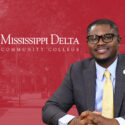 A new study lead by Cynthia Colen, an associate professor of sociology at Ohio State University, found that African Americans who attend historically Black colleges or universities may be at lower risk for health problems later in adulthood compared to African Americans who attend predominantly White institutions.
A new study lead by Cynthia Colen, an associate professor of sociology at Ohio State University, found that African Americans who attend historically Black colleges or universities may be at lower risk for health problems later in adulthood compared to African Americans who attend predominantly White institutions.
The research showed that Black adults who had enrolled in HBCUs had a 35 percent lower probability of developing metabolic syndrome by midlife compared to Black adults who enrolled in predominantly White schools. Metabolic syndrome is defined as the presence of at least three of five factors that increase the risk for heart disease, diabetes, and stroke – excess belly fat, elevated blood pressure, low “good” cholesterol, and high levels of blood glucose and triglycerides.
The analysis showed that 31 percent of the Black respondents who had attended predominantly White institutions had metabolic syndrome by midlife, compared to 23 percent of those who had attended HBCUs. The researchers noted that this kind of health benefit mirrors the risk reduction that scientific studies suggest people can achieve through change in diet or exercise.
The authors speculate that the reason Blacks who attend HBCUs are healthier later in life may be the result of the fact that they are less likely to be chronically exposed to the racial discrimination that has been shown to erode both mental and physical health years after people first encounter this type of unfair treatment.
The full study, “Racial Disparities in Health Among College-Educated African-Americans: Can HBCU Attendance Reduce the Risk of Metabolic Syndrome in Midlife?” was published on the website of the American Journal of Epidemiology. It may be accessed here.












I am astonished to read that some academics believe black students attending PWIs are more likely to encounter the unfairness of racial discrimination than blacks attending HBCUs.
I would have thought otherwise, because I’ve heard of so many situations in which black students have received special help from sympathetic white faculty and students. If the experience at PWIs is more stressful, might it not be because of stiffer competition and higher standards in the classroom?
Your misguided and dimwitted comment is indicative of your racist proclivities.
Well stated, Michael.
Dear E. Archer:
As someone who attended two PWI’s (USC and UVA), your astonishment shows the lane in which you reside. Whether choosing to look the other way, having homogenous friends and colleagues or enjoying the privilege often discussed in today’s society, there is no way that anyone could make your claims. Although I received some support from non-black deans and professors, there were plenty more who — for example– discouraged me from majoring in Japanese and East Asian Studies because black people did not ‘do things like that’ in their ignorant opinion. Luckily, my family and self esteem did not deter me from my goals.
The fact that you equate HBCU’s with less academic competition and lower standards shows that you think black people are a monolith. ‘Get to know one or two black people’ one day, would be my advice in a perfect world. You need to read more is my practical advice. Take me up on it or continue to suffer your willful racism amid rampant ignorance.
Have a good day.
Ewart Archer’s comment reeks of the widespread belief (among Caucasoids) that white colleges and universities are invariably tougher academically than their predominantly Black counterparts. Having taught at BOTH during my 30-year career in collegiate and postgraduate education, I can aver that this belief is mostly a figment of the imaginations of the uninformed. Archer’s generalization that “increased competitiveness” at PWIs could better explain the noted health disparities in the sampled two populations — this is an assumption in need of empirical validation. I would encourage Archer to revisit his “mental attic” and search for a more credible mythology that can better explain the health variances that Prof. Colen observed, given that he is incredulous of conclusions.
This comment is so absurdly ignorant it could only be spawned by your own racism.
Just so you know folks, I am black. Just not African-American.
Grew up in the Caribbean. Studied at several universities in the United States and Canada. Have held academic appointments in both countries.
Generalizations are sometimes treacherous, and feelings are easily hurt, but I’m not sure why anyone would bother to deny the academic superiority of the majority of PWIs over their HB counterparts. Rather like denying the Earth revolves around the Sun.
Why touch on this subject at all? Because too many of us pretend we are as good as anyone, instead of just trying our best and accepting the possibility that others may be a lot better.